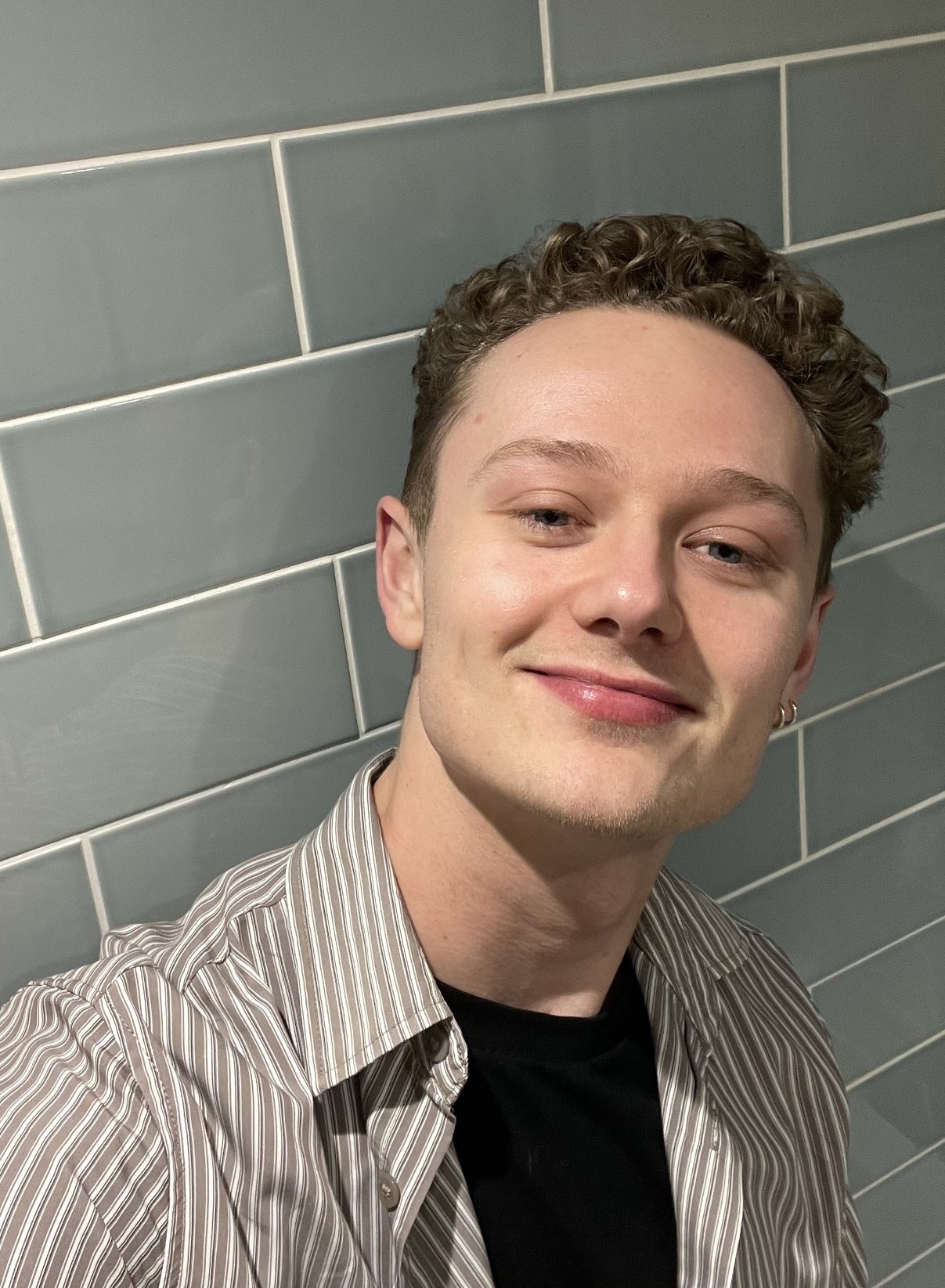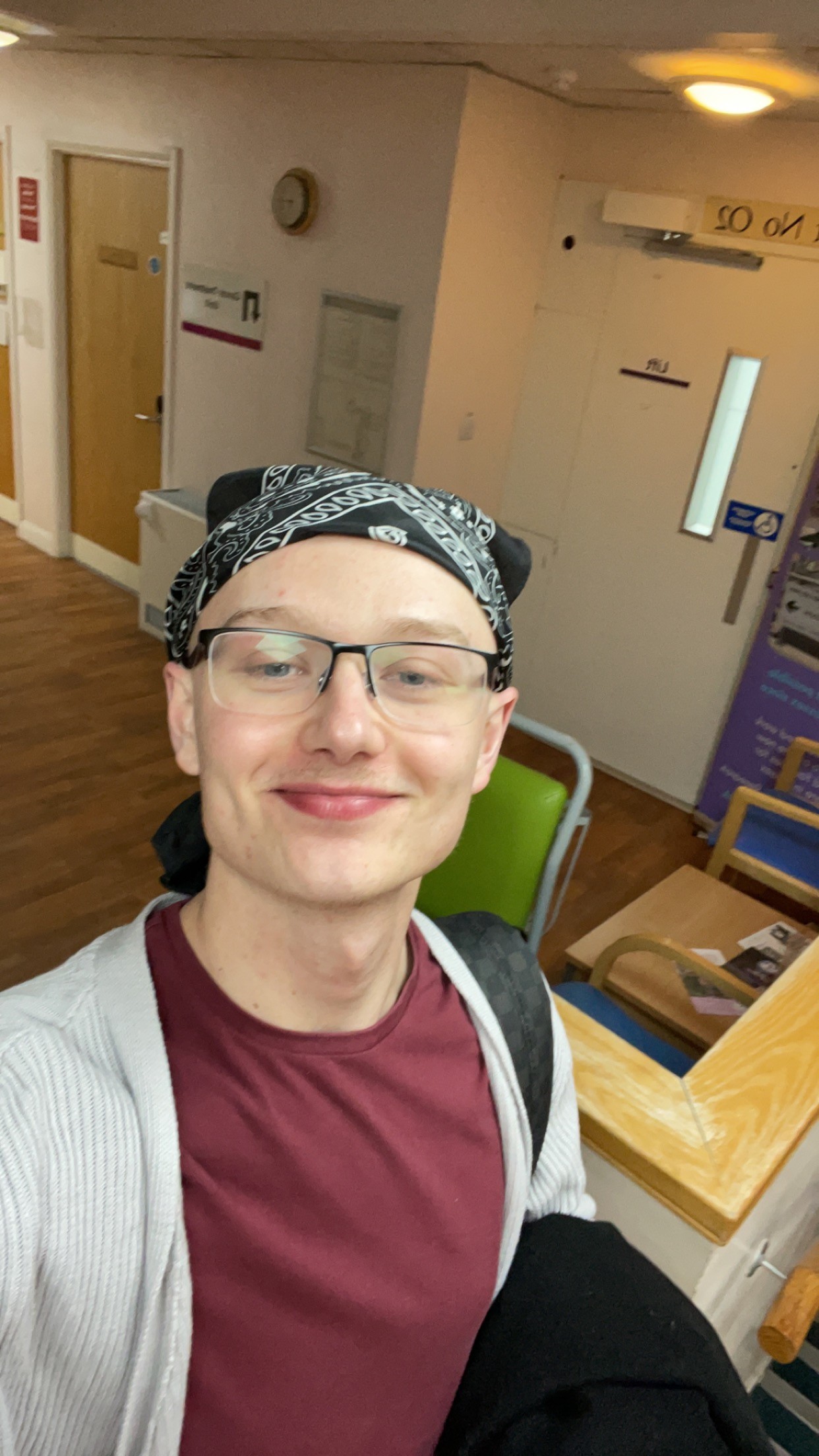Teenage and Young Adult Cancer Awareness Month
Jonny was one of the 2,300 young people diagnosed with cancer every year – now, at 25 years old, he’s decided to share his story.

Raising Awareness: Teenage and Young Adult Cancer Awareness Month
April is Teenage and Young Adult Cancer Awareness Month where we come together to raise awareness of the unique challenges faced by teenagers and young adults who are diagnosed with cancer.
Around 2,300 young people aged 15-24 are diagnosed with cancer each year and have to face the huge impact of its treatment. Nat from Trekstock spoke to Jonny, who shares his story below;
Testicular cancer is broadly a disease of survivors. When you're diagnosed at a young age, like me at 25, the process of going treatment and then entering survivorship makes me in particular think that the next 60+ years of my life might involve flashback thoughts of having cancer, and the fears of recurrence. That’s a long time to be having thoughts like this occupy your headspace. Having support in place, that cannot be provided by TYA which cuts of at 24 years, is important.
Added to this, those around me who are my age naturally struggle to connect with me over the thoughts, feelings and emotions I’ve experienced. I’ve realised that most people at 25 are not thinking of cancer. Before my diagnosis, I would think of my plans for the future based on my relationships with family & friends, my career, my hopes to buy a house, typical milestone moments. Who thinks they’d get cancer at an age when most people think they’re indestructible. Cancer makes you hit pause on everything else in your life. I want to be able to connect with people my age who have been through this, as well as those who are positioned to support us.

Every aspect of cancer treatment halts your ’normal’ journey in your mid-late 20s. Radical orchidectomy makes you question if you will still feel normal ‘down there’. "Will I still make testosterone? Will I still feel like a man? Should I have a prosthetic implant?”. Chemotherapy stripped me of many things twenty-something year old's take for granted - hair, immunity, normal sensations in your hands and feet, my heart rate, my ENERGY, my ability to go outside without fearing that I would catch a cold and end up in A&E with sepsis. I lived those 9 weeks of chemo’ bring a prisoner to my treatment. I worked from home when I could, but there were not many distractions from the relentless 21 visits to the hospital to have multiple IV bags of toxic drugs. Not many in their mid 20s will experience the morbid nature of sitting in a chemo ward. Less than 2 months after my last chemo infusion, I was having major open abdominal surgery to strip lymph nodes off of my major arteries behind my intestines, by my kidneys. Who is considering the anxieties that this will bring before they’re even 30? The scar you’re left with? The fears of nerve damage? My fertility? The points I make here is that I’ve had to endure so much at my age when I shouldn’t have to, like many others don’t. Being, or even feeling understood, is what’s important for me, and many others who go through similar treatment processes as me.
It’s not easy to put into words how grateful I feel to be through my treatment, and nearly being 1 year in remission. I have a lot of fears, but the gratitude is in being able to wake up and feel healthy, to go outside and feel the sunshine on my skin, to enjoy the daily routine many others to do. I’ve developed a lot of my empathy throughout this process, something else to be grateful for. That’s actually one thing that I feel makes me feel wiser. Not many in their 20s are described as wise, but I think I’m one of them, with my experience having shaped my perspective on life." Jonny
Charities have come together for the third year of TYACAM to raise awareness of signs and symptoms in teenagers and young adults (TYA) and the issues they face and, most importantly, support young people to share their experiences and ensure their voices are heard.
We’ll also be sharing how we – as individual organisations and as a collective – support young people with cancer.
By increasing awareness, #TYACAM hopes to:
- Promote Early Detection: Encouraging young people and their families to recognise the symptoms and seek medical advice promptly.
- Advocate for Specialised Care: Highlighting the need for age-appropriate treatments and psychosocial support.
- Celebrate Resilience: Acknowledge the courage and determination of TYAs who are living with and beyond cancer
- Amplify Support Networks: Connecting TYAs with peers who truly understand their experiences.
Join Trekstock in amplifying the voices of young people with cancer.


